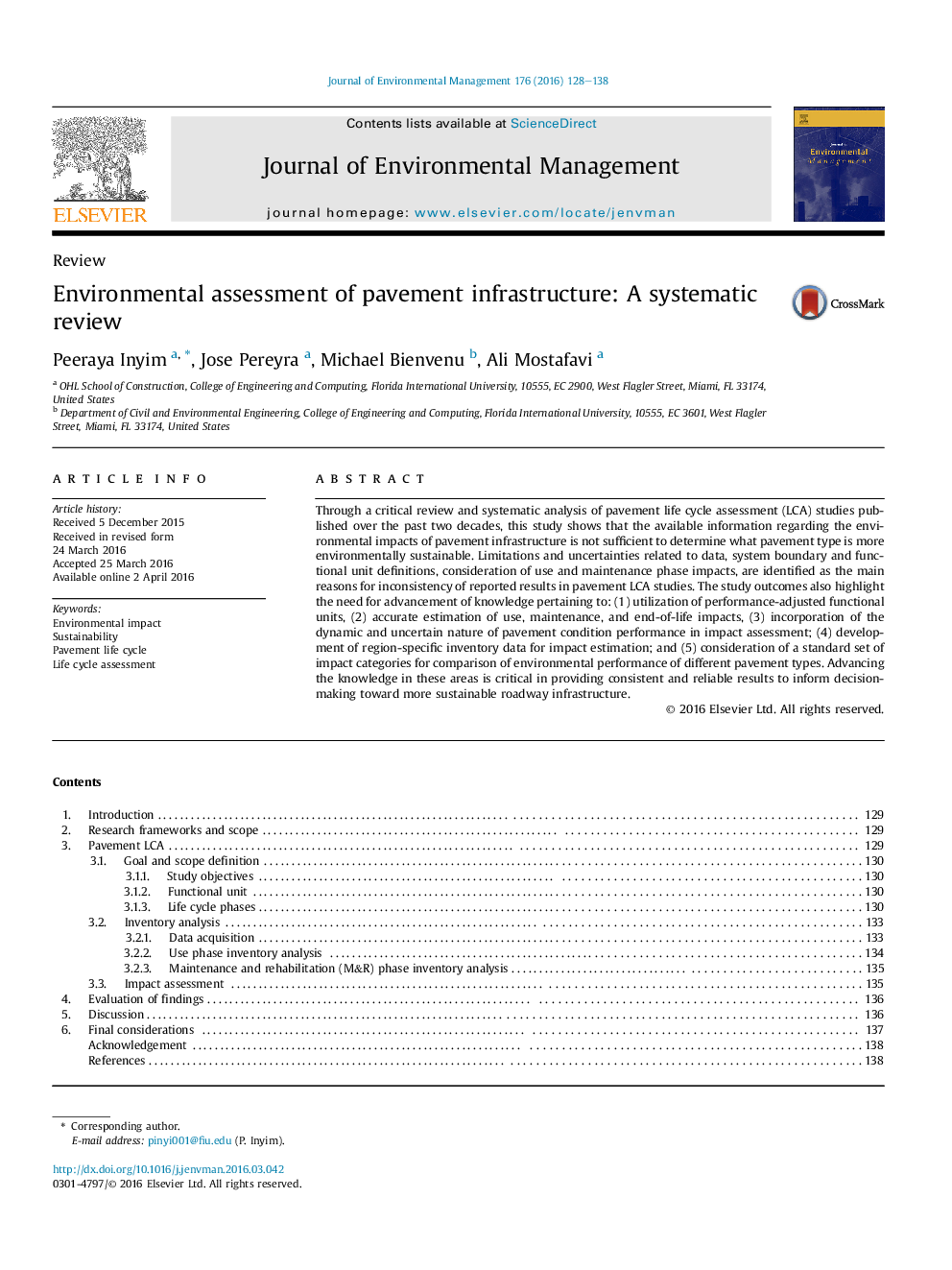| Article ID | Journal | Published Year | Pages | File Type |
|---|---|---|---|---|
| 1055335 | Journal of Environmental Management | 2016 | 11 Pages |
•A systemic evaluation of pavement life cycle analyses shows no consensus.•The differences between the reported results are influenced by LCA methods and data.•The LCA methods and data used are analyzed to identify limitations of knowledge.•Pathways towards enhancing the reliability of pavement LCA results are proposed.
Through a critical review and systematic analysis of pavement life cycle assessment (LCA) studies published over the past two decades, this study shows that the available information regarding the environmental impacts of pavement infrastructure is not sufficient to determine what pavement type is more environmentally sustainable. Limitations and uncertainties related to data, system boundary and functional unit definitions, consideration of use and maintenance phase impacts, are identified as the main reasons for inconsistency of reported results in pavement LCA studies. The study outcomes also highlight the need for advancement of knowledge pertaining to: (1) utilization of performance-adjusted functional units, (2) accurate estimation of use, maintenance, and end-of-life impacts, (3) incorporation of the dynamic and uncertain nature of pavement condition performance in impact assessment; (4) development of region-specific inventory data for impact estimation; and (5) consideration of a standard set of impact categories for comparison of environmental performance of different pavement types. Advancing the knowledge in these areas is critical in providing consistent and reliable results to inform decision-making toward more sustainable roadway infrastructure.
Graphical abstractFigure optionsDownload full-size imageDownload as PowerPoint slide
